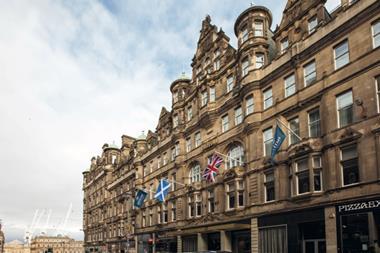Real estate investors expect this year’s tougher economic headwinds to result in more distressed asset sales due to more expensive debt, prompting capital to shift to safer havens with more predictable cashflows, according to a study published by consultancy firm Auxadi.
According to the research, 82% of the 108 senior-level real estate investors surveyed expect to see a rise in distressed assets coming to market, up 15% on last year, with interest rate hikes and mounting cost pressures set to take their toll.
Almost as many investors (81%) predict a reallocation of capital to commercial sectors with safer cashflows such as medical facilities, self-storage and industrial, with 79% of those surveyed flagging the rising cost of debt, up 22% from 2021, the biggest year-on-year hike.
Deal flow was the second largest riser after the cost of debt, up 21% on the previous year to 75%.
The study also reveals where real estate investors expect to see the biggest opportunities. Over two-thirds (69%) of real estate investors expect the residential sector to post the strongest gains over the next two years, ahead of central business district-located offices (56%) and food-anchored retail parks (49%).
The residential sector has seen the biggest post-pandemic bounce in sentiment in the past 12 months – up from fourth place last year scoring just 30% – with investors recognising that the sector’s long-term structural supply-demand imbalance has gathered fresh momentum.
After a record-setting year in 2021 where the logistics sector made up nearly a quarter of all commercial real estate investment globally, according to JLL research, it has registered the biggest drop in performance expectations, down 26% from 54% to 28%.
The report, ‘Real estate: balancing new risks and opportunities in a changing investment landscape’, is the second annual property outlook commissioned by Auxadi, and was based on interviews with investors based in the UK, Continental Europe and North America with average assets under management of €14.5bn.
The study found that real estate investors expect food-anchored retail parks to see the biggest improvement in fundraising sentiment, up 16% from last year to 87%, benefiting from the post-pandemic shift in consumer shopping habits, ahead of the alternatives sector (83%), supermarkets (81%) and residential (81%).
One of the biggest casualties of Covid-19, the high street retail sector, is expected to attract more fundraising over the next two years, up 21% from 2012 to 80%, according to respondents.
Rima Yousfan, head of funds at Auxadi said: “Given the worsening economic climate exacerbated by the war in Ukraine, rising inflation and volatile markets, real estate investors are showing a more bearish outlook with distressed asset sales, a flight to capital safety and slower deal flow as key trends for the year ahead.
“Our research also highlights how the real estate industry is continuing to adjust its outlook as the pandemic subsides with renewed support for central business district offices and retail parks as well as a strong vote of confidence in the residential sector. While the logistics sector will continue to benefit from the rise in e-commerce and tighter supply chain management, investors may be concerned about how valuations have risen.
“Over the past 12 months we’ve seen a significant increase in the number of real estate investment firms outsourcing more of their operational functions, such as SPV administration or their accounting and tax, to third parties in order to focus their efforts on finalising acquisitions and we expect this to continue as these firms take advantage of the attractive investment landscape.”
To read the latest edition of the latest IPE Real Assets magazine click here.























